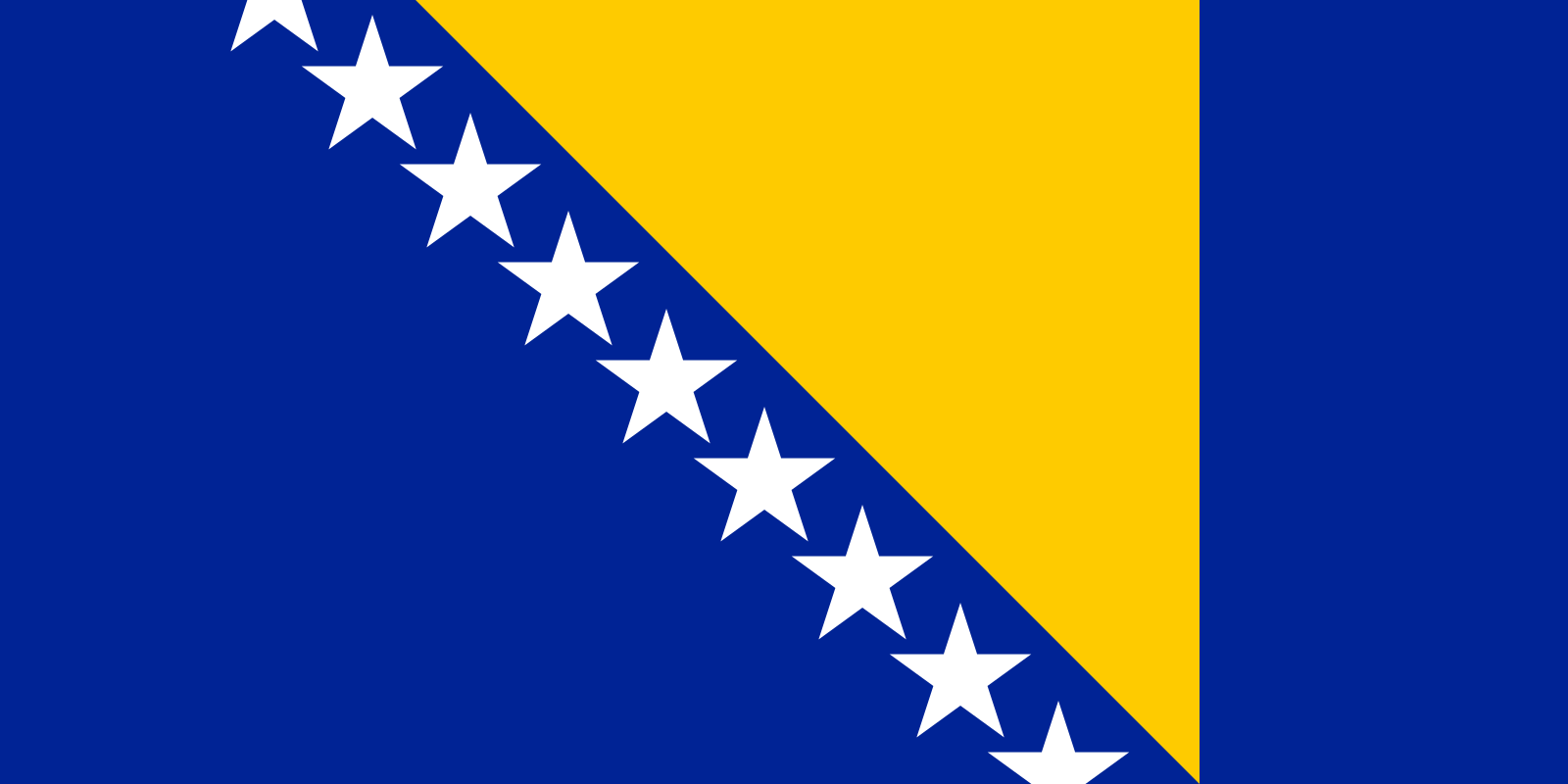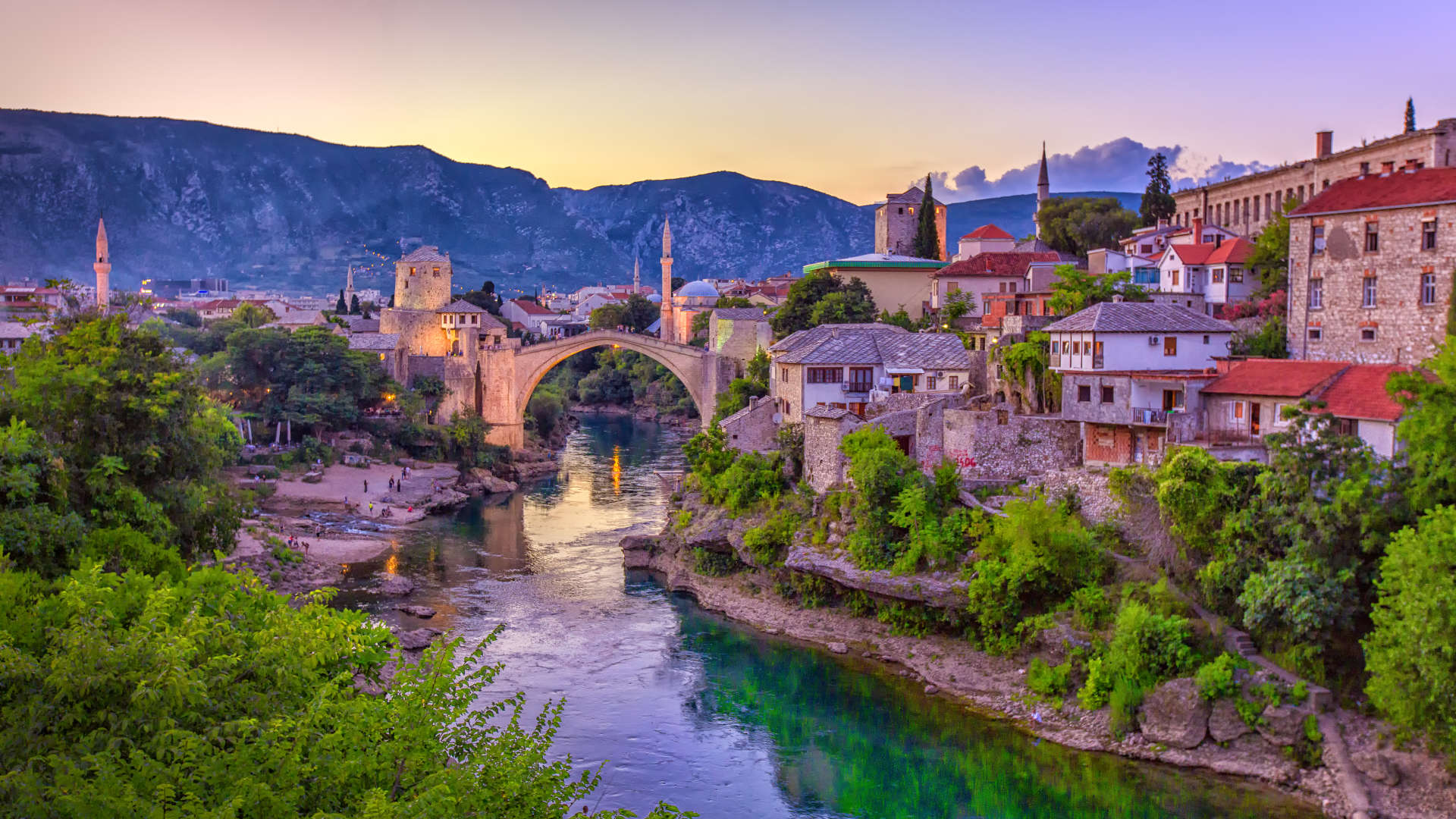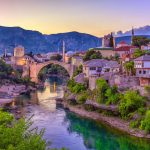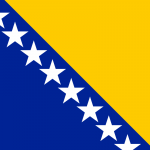Bosnia and Herzegovina (Bosna i Hercegovina, Босна и Херцеговина, usually shortened to BiH) is a European country located on the Balkan peninsula. It was formerly part of Yugoslavia but gained independence in 1992. It borders Croatia to the north, west and southwest, Serbia to the east and Montenegro to the southeast. Mostly mountainous, it has access to a tiny portion of the Adriatic Sea coastline in the south. who remain honorary heads of state.
Until recently, the idea of a Bosnian-Herzegovinan nationality mainly applied to the nation’s Muslims, also referred to as Bosniaks. Bosnia and Herzegovina’s Croatians and Serbs looked to Serbia and Croatia for guidance and as the mother country and both had aspirations for political union with either Serbia or Croatia once the Yugoslav state began to fall apart in the early 1990s. This of course spelled disaster for the state of Bosnia-Herzegovina and as a result Bosnia and Herzegovina became a blood bath in 1992. Bosnia and Herzegovina was attacked by the Serbian-led Yugoslav National Army and insurgent Bosnian Serbs, and in 1993 Croatia with insurgent Bosnian Croat forces joined in the aggression. In the end the Croatian-Bosniak alliance fought the Serbian forces on the ground whilst NATO attacked the Bosnian Serbs from the air. A peace treaty followed with a heavy handled role of the U.S. Clinton Administration helping seal the deal in Dayton, Ohio. The result was that Bosnia would comprise of two entities and a District of Brcko. Things have rapidly improved since then but the two regions of Bosnia still have a long way to go towards complete political and social union. As of now, it could be said Bosnia-Herzegovina functions as one country with two or even three different parts. However, the central government lies in Sarajevo and there is one common currency, the Bosnian Mark (KM).
- Le bon jet au bon prix 24 heures sur 24, 7 jours sur 7
- +30 210 996 7870
- +30 693 23 32 090
- info@jets4you.net
Bosnia & Hercegovina

| Capital | Sarajevo |
| Government | Federal Democratic Republic |
| Currency | Convertible Mark (BAM) |
| Area | 51,129 sq km |
| Population | 3,531,159 (2013.) |
| Language | Bosnian, Serbian, Croatian |
| Religion | Muslims 50.7%, Orthodox Christians 30.75%, Roman Catholics 15.19%, others 3.36% |
| Electricity | 220V/50Hz (European plug) |
| Country code | +387 |
| Internet TLD | .ba |
| Time Zone | UTC+1 |
From wikitravel.
For a personalized price for a private jet to or from Austria, please contact us or call our 24/7 Flight Representatives at +30 210 996 7870 (24 HRS)
DESTINATIONS IN Bosnia & Hercegovina
RENT A PLANE TO Andorra
Craggily beautiful Bosnia and Hercegovina is most intriguing for its East-meets-West atmosphere born of blended Ottoman and Austro-Hungarian histories. Many international visitors still associate the country with the heartbreaking civil war of the 1990s, and several attractions focus on the horrors of that era. But today, visitors will likely remember the country for its deep, unassuming human warmth, its beautiful mountainscapes and its numerous medieval castle ruins. Apart from modest Neum it lacks beach resorts, but easily compensates with cascading rafting rivers, waterfalls and bargain-value skiing in its mostly mountainous landscapes.








